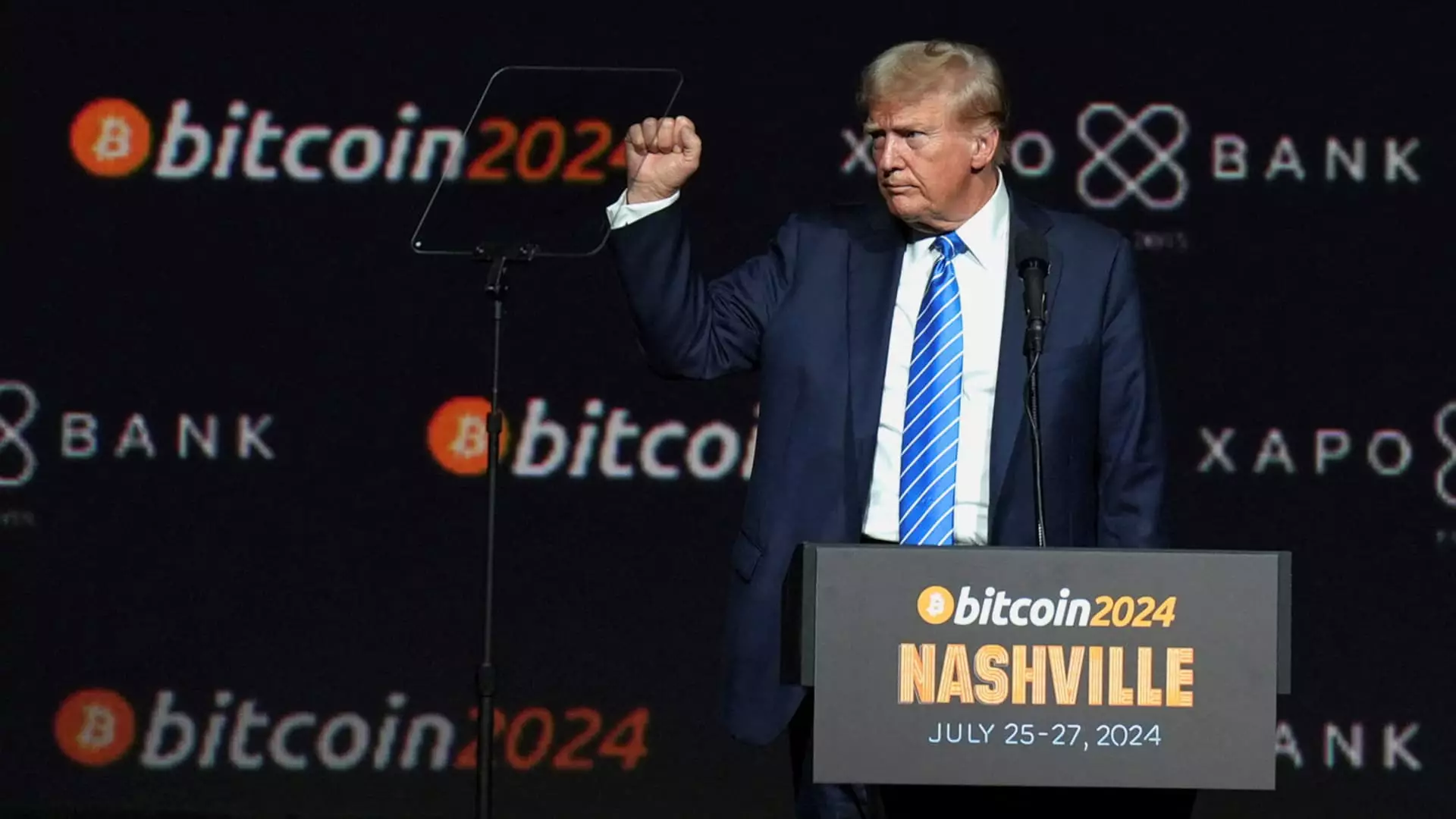In a bold and strategic leap, Trump Media has secured a staggering $2.5 billion from institutional investors, marking its most ambitious transition yet—from a platform for free speech to a significant player in the financial services sector. As the company embarks on what it describes as a core treasury investment in Bitcoin, the implications go far beyond mere corporate finance; they encapsulate a larger narrative of resistance against the perceived bias of traditional financial institutions towards conservative ideologies.
The Shift from Ideological Motive to Financial Strategy
The financial landscape is increasingly overshadowed by ideological polarization, particularly in the wake of claims from influential conservatives about discrimination from banking institutions. By allocating a significant portion of their treasury to Bitcoin—often touted as the ultimate currency of freedom—Trump Media reveals an underlying motive that aligns wealthy conservative interests with the burgeoning crypto industry. According to the company’s CEO Devin Nunes, this move is a defensive strategy against financial discrimination, allowing conservative businesses to navigate a system that they feel has systematically marginalized them.
This shift indicates a growing recognition among conservatives of the inherent value in digital currencies not just for gain, but as a lifeboat against a potentially hostile economic environment. Tokenizing their wealth and influence through Bitcoin is not merely a financial maneuver; it’s a staking of claim in an arena dominated by disruptive technologies.
Bitcoin: The Apex of Financial Freedom?
The idea that Bitcoin serves as an “apex instrument of financial freedom” is touted by Nunes, but this assertion merits deeper scrutiny. While Bitcoin’s decentralized nature can offer a refuge from traditional financial systems and their potential biases, how sustainable is this freedom in practice? Will the conservative contingent rally behind Bitcoin’s volatile nature in the long term, or will the investment become yet another financial bubble, inflated by political hopes and aggressive marketing tactics?
The entire narrative hinges on the belief that Bitcoin transcends traditional boundaries, but history shows us that speculative bubbles can form rapidly, especially when driven by high-profile endorsements. The potential for short-term gains exists, but so too does significant risk, particularly for those relying on it as a resolute emblem of financial autonomy.
Institutional Credibility vs. Public Perception
Selecting Anchorage Digital and Crypto.com to manage their Bitcoin reserves sends a mixed message in the context of conservative principles. Are these firms truly aligned with Trump’s brand of financial integrity, or merely players in the same game of capitalism that they aim to disrupt? While institutional investors appear willing to support this move—evidenced by the $2.5 billion infusion—larger public sentiment could remain skeptical.
Critics may argue that the perceived alignment with mainstream financial institutions contradicts the populist ethos that propelled Trump into legacy status among his base. The integration of established financial frameworks with a movement that prides itself on challenging the status quo reveals a complicated dynamic; it asks whether these ventures are authentically conservative or merely utilizing conservative identities to attract capital.
The Broader Implications for the Conservative Movement
While some view the expansion into financial services as a significant opportunity, others may see it as a pressing conundrum. Aligning with the crypto industry could signal a calculated shift in how conservatives engage with modern finance—a reflection of how traditional economic frameworks are being altered. It represents a broader willingness to adapt, innovate, and reclaim agency through emerging technologies.
As the Trump brand becomes more intertwined with digital assets, it signals to both supporters and opponents that the future is not merely about politics but also involves financial ingenuity. Will other conservative entities follow suit, adapting their business models accordingly? This dalliance into the crypto space could incite a surge of like-minded ventures, cultivating an ecosystem grounded in a shared ideology that increasingly intertwines politics with high-risk, high-reward financial strategies.
The investment in Bitcoin reflects a pivotal moment for Trump Media and its alignment with the broader conservative movement’s adaptation to a digital economy. The implications are profound, sparking a philosophical debate about where financial strategies and political motivations intersect. As this venture continues to unfold, it will catalyze discussions on the true nature of financial freedom versus the actual risks involved in adopting such a volatile asset. The real question is whether this audacious gamble will pay off, or will we witness the unraveling of another story where ideology meets hard currency, often to fraught consequences.

